14 Foods that Help You Heal After Injury or Illness
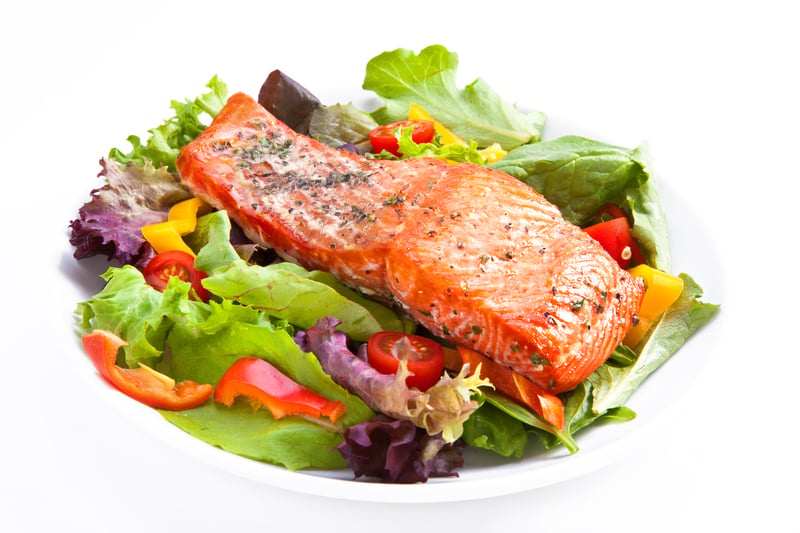
At some point or another, all of us are bound to get injured or have to fight off an illness. As we recover, it’s only natural to wonder how long it will take before we’re back to full health. And you may wonder if you should eat more or less and if there are any foods that can help you heal.
You may even wonder if you will lose strength or gain (or lose) weight as you sit on the sidelines waiting to fully recover. If you’re worried about weight gain, you may even be tempted to cut calories.
How Much Should You Eat to Help Your Body Recover?
If you are stuck on the sidelines, you may be afraid you’re burning fewer calories and thus cut back. After all, you won’t be as active. Unfortunately, if you cut calories, you can slow recovery as your body needs fuel to repair.
Plus, if you have a fever, that can increase your calorie burn. If your body is working hard to heal damaged tissue, that also requires extra energy. In fact, research suggests your metabolism may increase by up to 20% in the days after experiencing trauma, such as a broken bone or muscle or tendon tear. It can increase even more after surgery. Remember, the body is hard at work to build back and repair the injured tissues.
Cutting calories may even delay recovery and increase muscle breakdown to help fuel the recovery. So, to ensure your body has the fuel needed to heal, now is not the time to cut back. Instead, eat. Ensure you’re getting enough calories to at least maintain your current weight and focus on consuming more nutrient-dense foods to help you avoid any deficiencies. (A simple calorie calculator can help provide a general guideline for maintenance calories.) This way, your body will have the building blocks needed to recover and grow stronger.
14 Foods That Help You Heal
Several foods have been shown to help support healthy levels of inflammation and immune function as well as promote healing as your body mends. Here are 14 healing foods to add to your recovery menu:
1. Eggs
As the body heals, it needs building blocks (i.e., amino acids), which are found in protein. Experts recommend ensuring you consume enough protein, often recommending up to 1.7 to 2 grams of protein per pound of body weight as your body is working hard to recover. So, for instance, a 165-pound person would need around 280 to 330 grams of protein per day.
One simple way to start the day with more protein is to eat eggs. Eggs provide ~6 grams of a highly bioavailable form of protein along with other healing nutrients like vitamins A, B12, and D, zinc, iron, selenium, and choline.
2. Salmon
Another protein-packed, healing food to add to the menu is salmon. A 3-oz serving of salmon provides 17 grams of protein and only 121 calories. It also provides omega-3 fats, B vitamins, vitamin D, selenium, iron, and zinc, which all support the body’s natural ability to heal.
3. Poultry
Another popular protein-rich healing food is poultry, such as chicken and turkey. Poultry provides amino acids the body needs to rebuild and promote immune function, such as glutamine and arginine. Glutamine is also needed to produce collagen, which supports healing.
4. Shellfish
Some of the richest sources of zinc in the diet include shellfish like clams, oysters, and mussels. Zinc, in turn, is well known for its ability to promote a healthy immune system, which includes wound healing.
5. Collagen
Collagen is the number one protein in the body and is the “glue” that holds us together. Many folks include it in the diet to support the health of their skin, joints, and even hair. Indeed, collagen is found throughout the body in the connective tissue, skin, bones, and cartilage, and it’s been shown to support tissue repair, a healthy immune response, and more, so it only makes sense to include it as part of this list of foods that help you heal.
6. Greek Yogurt
Up to 70% of the immune system is located in the gut, so ensuring the gut has abundant beneficial bacteria is vital to a healing body. Greek yogurt is rich in protein as well as probiotics, making it a natural choice for helping the body heal. Other foods rich in probiotics include sauerkraut, kefir, and kombucha.
7. Leafy Greens
One of the most nutrient-dense plant food options is leafy green vegetables. They provide a good dose of vitamins A, C, and E, folate, zinc, magnesium, manganese, and antioxidant polyphenols. So, load up your plate with arugula, chard, kale, mustard greens, spinach, and the like to provide the nutrients your body needs to help lower inflammation, boost immunity, and support healing.
8. Cruciferous Vegetables
Broccoli, cauliflower, Brussels sprouts, kale, and cabbage are all well-known for their potent benefits for health. They’re rich in vitamins, minerals, and antioxidants. This includes vitamin C, B vitamins, and glucosinolates, which are used by the body to help promote immune health and collagen production.
9. Berries
While you’ll likely want to reduce sugar as your body is healing (as sugar can decrease the body’s ability to heal), that doesn’t mean you have to give up sweet treats. Berries, for instance, provide a big burst of flavor in a small serving. Plus, they’re loaded with nutrients that help the body heal. They’re a fantastic source of vitamin C, for example. C is needed for the body to produce collagen, which has a whole host of benefits for healing (see above). And berries also provide anthocyanins, antioxidants that give berries their vibrant color and also provide healing benefits, including reducing inflammation and supporting a healthy immune response.
10. Sweet Potatoes
Along with other orange-colored plant foods, sweet potatoes are rich in carotenoids, which are vital for a healthy immune response. In addition, the body needs energy to heal, and healthy complex carbs provide this necessary fuel. They also provide compounds that have been shown to help cells repair, such as hexokinase and citrate synthase, as well as more common vitamins and minerals like vitamin C and manganese.
11. Whey Protein
Another simple way to consume more protein and the amino acids it provides is to use a whey protein supplement. Interestingly, whey has even been found in studies to benefit folks recovering from burns and wounds.
12. Mushrooms
Another food that has a positive effect on inflammation, immune functioning, as well as gut health includes a variety of mushrooms. Mushrooms are rich in fiber, calcium, vitamin D, and zinc—all nutrients needed to support recovery.
13. Nuts and Seeds
Walnuts, flaxseeds, almonds, sunflower seeds, pecans, and hemp are all healthy choices that may help fuel your recovery. They’re rich in plant-based protein, healthy fats (including omega-3), vitamins, and minerals like vitamin E, zinc, magnesium, and manganese that have been shown to support the immune system.
14. Green Tea (or Black, White, or Oolong)
Rich in polyphenols, which are antioxidants our bodies use to help support healing, any type of tea is perfect for a soothing beverage on your healing foods menu.
Healing Foods: A Wrap-Up
Now that you know what healing foods to add to the menu, are there any foods to avoid? Indeed, there are, including:
- Refined grains like pasta, bread, cereals, and rice
- Added sugars as found in candies, cookies and other baked treats, juices, and soda
- Refined fats such as ultra-refined vegetable oils, shortening, and fried foods
- Farmed fish and conventionally produced meats, dairy, and poultry
- Ultra-processed foods, such as chips, crackers, processed meats, etc.
In addition to eating a nutrient-rich diet, you can help the body heal by ensuring you:
- Get enough rest, including quality sleep.
- Drink plenty of water to stay hydrated to support your skin and muscles as they heal and to recover from a fever or diarrhea, which can both dehydrate the body
- Avoid alcohol, which can impair healing
- Steer clear of smoking, which can suppress the immune system, damage collagen, and potentially lead to vitamin and mineral deficiencies.
Here’s to foods that help you heal for a fast recovery, no matter what your setback has been!


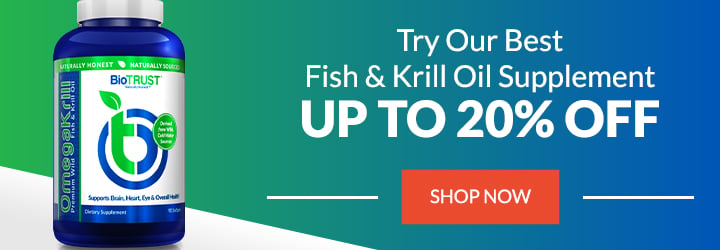
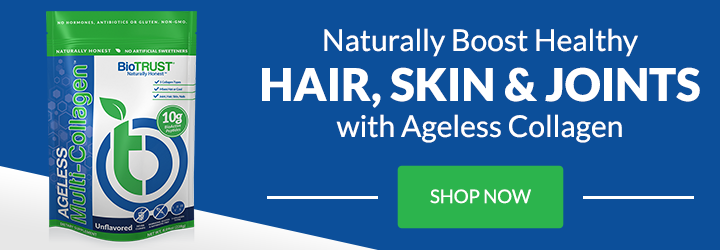
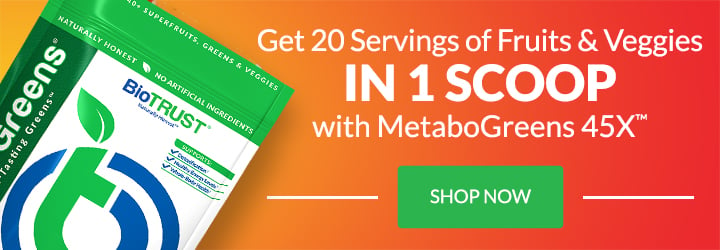
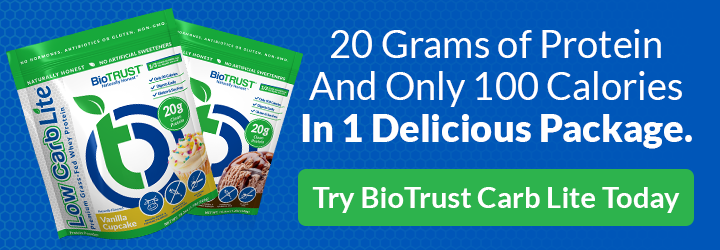

 7 Signs Your Body is Seriously Low on Collagen (not just wrinkles)
7 Signs Your Body is Seriously Low on Collagen (not just wrinkles) Health Expert: "Turmeric Doesn't Work (unless...)"
Health Expert: "Turmeric Doesn't Work (unless...)" 3 Warning Signs Your Probiotic Supplement is a Total Waste
3 Warning Signs Your Probiotic Supplement is a Total Waste

